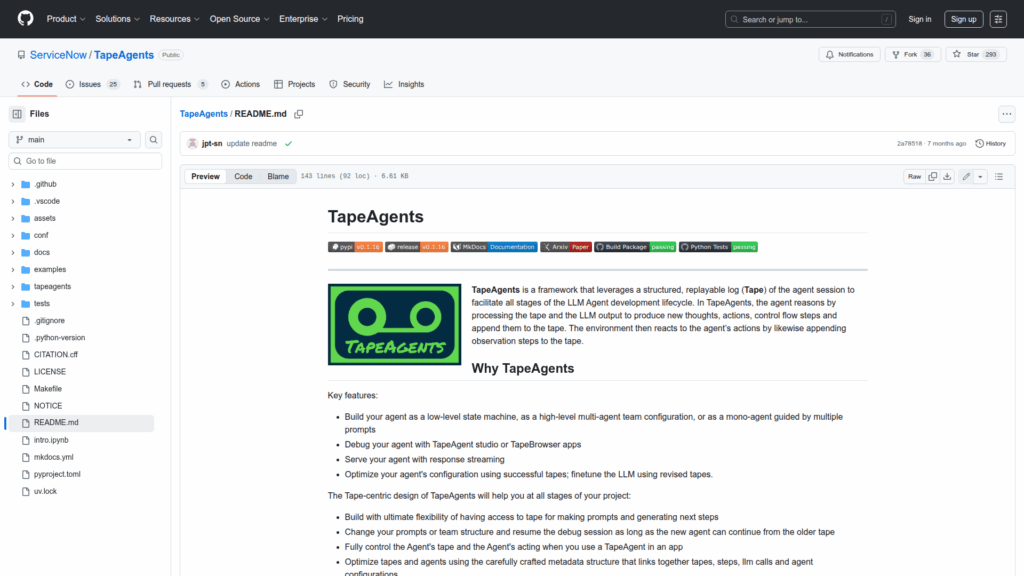TapeAgents
Basic Information
TapeAgents is a Python framework for building, debugging, serving and improving LLM-based agents using a structured, replayable session log called a tape. The tape records agent thoughts, actions, control-flow steps and environment observations so agents reason by processing and appending to that log. The project supports constructing agents as low-level state machines, as high-level multi-agent teams, or as mono-agents guided by multiple prompts. It includes an introductory Jupyter notebook and example scripts demonstrating real tasks and benchmarks. TapeAgents is intended for developers and researchers who need reproducible agent execution, fine-grained control over prompts and state, and a workflow that spans development to deployment. The repo provides installation instructions, examples, tools for running agents with streaming LLM responses, and links to documentation and a technical report describing the design and research behind the approach.








